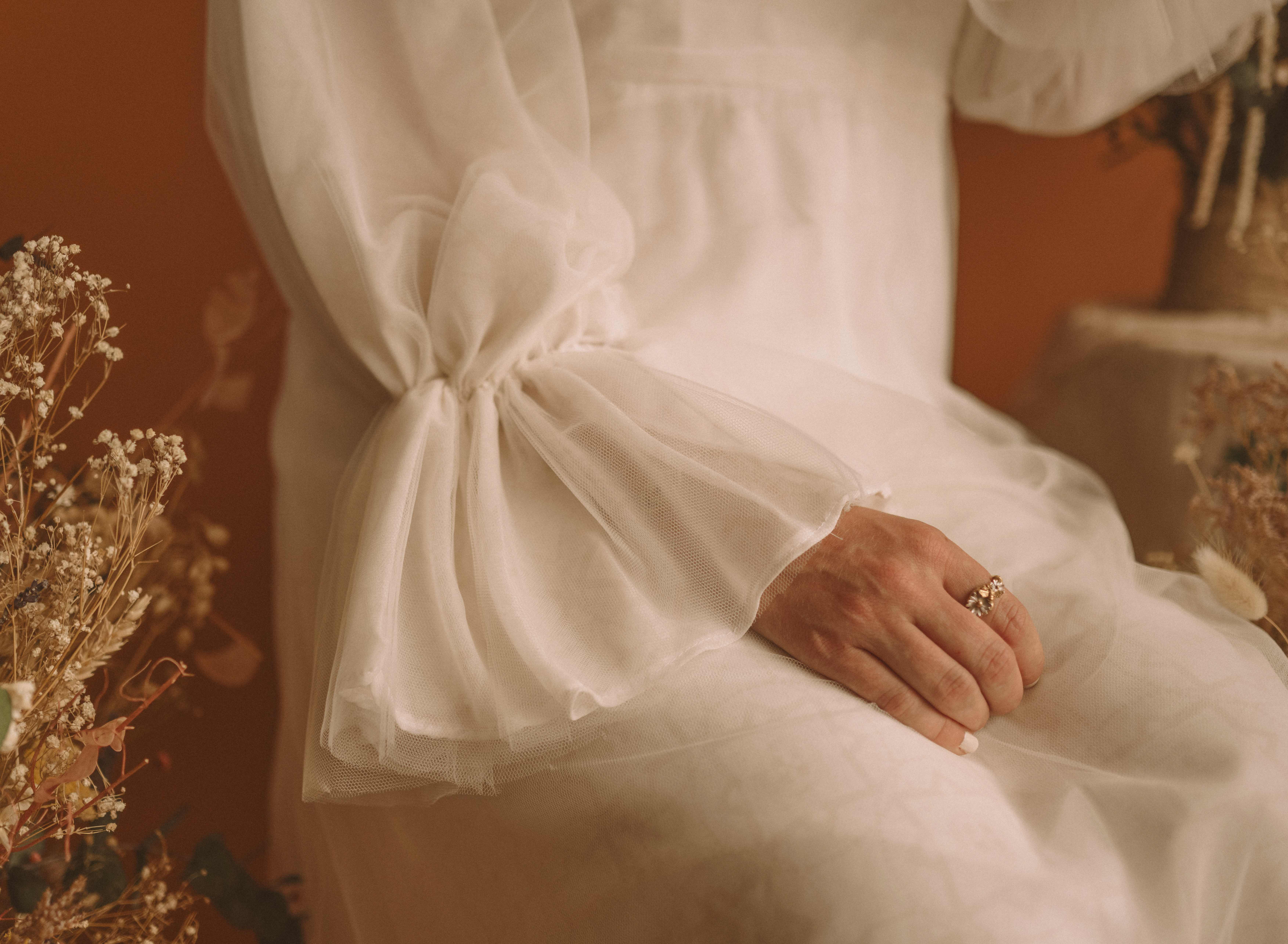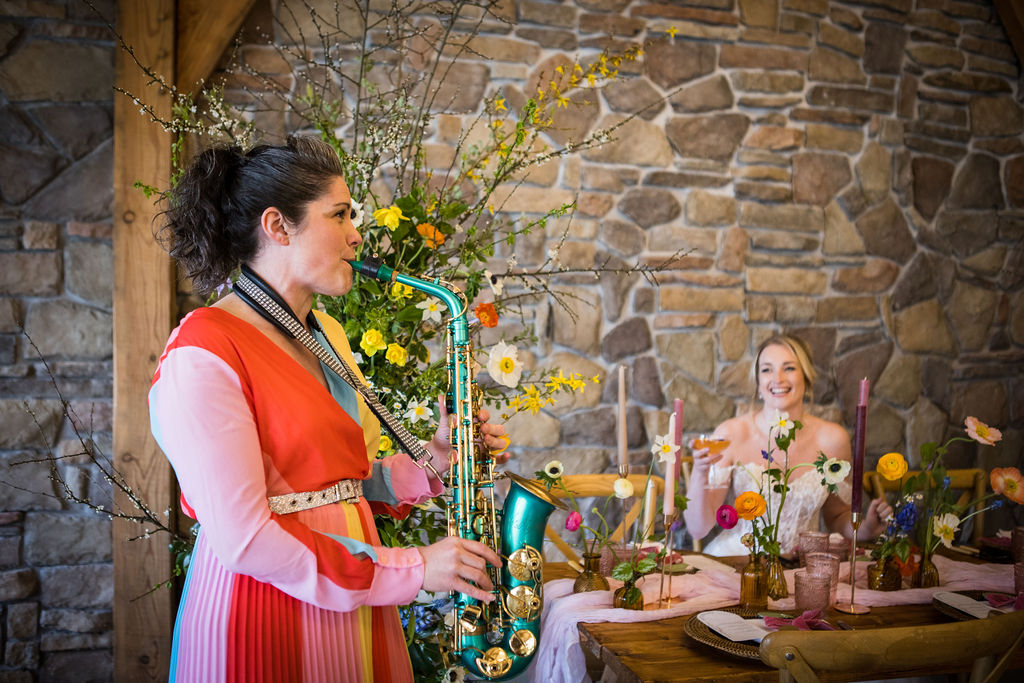World Fair Trade Day is a global celebration organised annually by the World Fair Trade Organization (WFTO) . The International Awareness Day focuses on alternative solutions to the planet’s economic and ecological challenges. This year, the celebration focuses on Climate Justice and the solutions presented by the Fair Trade, cooperative and organic movements. The ecological and social justice crisis we are currently facing must be addressed with fresh solutions, and together we CAN make a difference.
So What is Climate Justice?
As we know, climate change is happening now due to our actions in history, especially following the Industrial Revolution onwards. This is impacting populations across the world unevenly. Of which, generally speaking communities that are poorer, are being more severely impacted by the effects of climate change, compared to richer countries. Climate Justice is about coming together as a global community to find solutions to slow down climate change, and support those communities worse affected by the changing climate.
The Mary Robinson Foundation has implemented 10 Principles of Climate Justice to structure how we tackle the global challenge, and everyone has a part to play. ‘Climate justice links human rights and development to achieve a human-centred approach, safeguarding the rights of the most vulnerable people and sharing the burdens and benefits of climate change and its impacts equitably and fairly. Climate justice is informed by science, responds to science and acknowledges the need for equitable stewardship of the world’s resources. ’
How Can We Positively Impact Climate Justice When Planning Our Wedding?
As consumers, we hold massive power through the purchasing activity we carry out, and when planning our wedding and selecting our wedding jewellery, this is no different. By simply being more inquisitive about where our purchases have come from, how they have been made, what they have been made of, and who has made them, we can slowly but surely turn the tide on unethical and environmentally damaging product production. You can find out our top tips on how to make more informed decisions within your wedding planning by browsing our blog ‘7 Simple Wedding Day Swaps to Help Heal our Planet’
The Positive Impact of Fairtrade & Fairmined Wedding Jewellery
In support of World Fair Trade Day, we have invited our super talented approved supplier April, from April Doubleday Jewellery, an ethical jeweller, who uses only Fairtrade and Fairmined gold and recycled silver within her wedding jewellery work in her North Devon UK based workshop, to share her expertise with us. April shares with us the beneficial impact Fairtrade and Fairmined gold has upon both artisanal miners at the very start of the supply chain, as well as the environment and local habitats the precious metal is mined within.
By using Fairtrade/Fairmined or Ecological Certified gold means:
- Transparency & traceability in the supply chain
- Progressive environmental responsibility – management of toxic substances
- Greater access to mineral wealth for miners
- The minimum price limits exploitation by disreputable traders and companies
- Improved gender equality for women
- Elimination of child labour
- Standards for labour conditions
- Health and safety improvements
- Premium payments direct to communities for their development priorities - this means artisanal miners receive a Fairtrade premium payment, which is democratically reinvested in community projects and improving miners' operations. This is calculated as 10% of the applicable LBMA fixing. For Ecological Gold (gold extracted without the use of chemicals) this is calculated as 15% of the applicable LBMA fixing.)
In 2013 April visited South American artisanal gold mine to speak with Ameriko, one of the many miners who work within the Fairtrade/Fairmined guidelines. April's son filmed the trip, and captured Ameriko’s explanation, in his own words, how he is paid a fair price plus a premium from Fairtrade/Fairmined for his gold. Such payments are then fed directly back into the local community.

The film demonstrates Ameriko mining in an ecological manner; all health and safety standards are in place, no damaging child labour is used, both men and women mine and pan for gold and platinum, the miners themselves take responsibility for the safe handling and disposal of chemicals used in the extraction process, seams are backfilled and replanted after they have been exhausted. Ameriko claims that he and his fellow miners make every effort to mine in a sustainable manner. This is in contrast to foreign large-scale mining operations that, Ameriko says, do not mine responsibly and thus destroy the local waterways and environment.
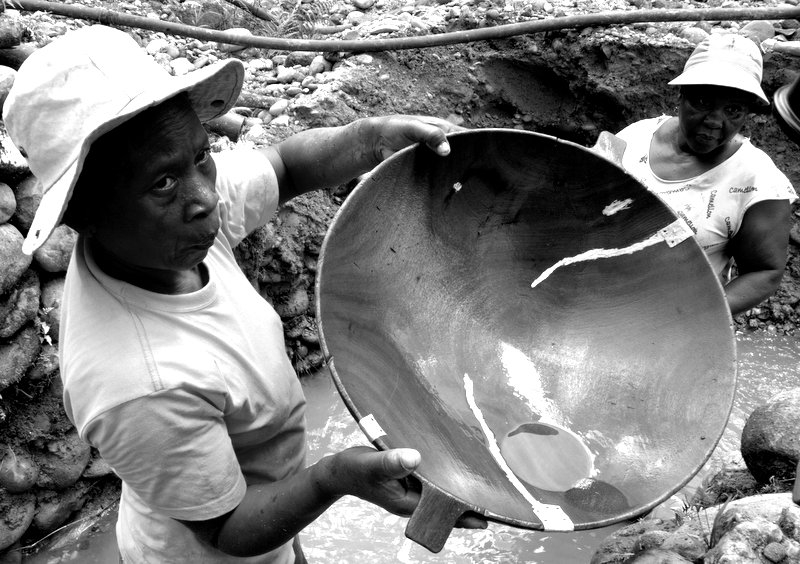
Here is what April said about her trip…
Since 2011, a good amount of gold from the Choco Region of Columbia has been certified as Fairtrade and Fairmined, Ecological gold. So in 2012, my son and I headed out to Columbia to visit an artisanal mine to meet the miners and the source of some of the gold within my jewellery work.
First stop on our trip was the Oro Museum (gold museum) in Bogotá, it was fascinating. Before Columbia was invaded by the Spanish, the Tyrona peoples and other indigenous tribes worked gold, mostly for the use for burial ceremonies, it wasn’t viewed as wealth but to transport the sole from this world to the next. Present day gold has increased hugely in price, consequently poor mining practices are used in the Choco region and other countries, exacerbated by governments allowing larger outfits in at a price, but in doing so they are destroying large parts of the jungle and contaminating the waters due to irresponsible mining.
As we flew over the Choco region you could see the destruction caused by larger scale mining. It was 6am when we landed at the tiny airport outside the town of Quibdo.
My son (the filmmaker), our translator and I, took the long road out by vehicle to Angostura, passing small villages on the way. We were heading out to where a miner I had met at London Jewellery Week, and where Fairtrade and Fairmined gold was officially launched.
We stopped at a small bridge where his two children flagged the vehicle down; we then walked into the jungle towards the mine.
After walking for quite a while in intense heat through the lush Choco region, we heard the noise through the silence of a generator. There in the clearing, I could see the criss cross of narrow dug out trenches supported by large stones, stood Juis Ameriko Mosquero, the artisanal miner we were here to interview. It was a lovely moment. He smiled and his wife and 2 female workers showed how they mine gold in an ecologically sustainable way.
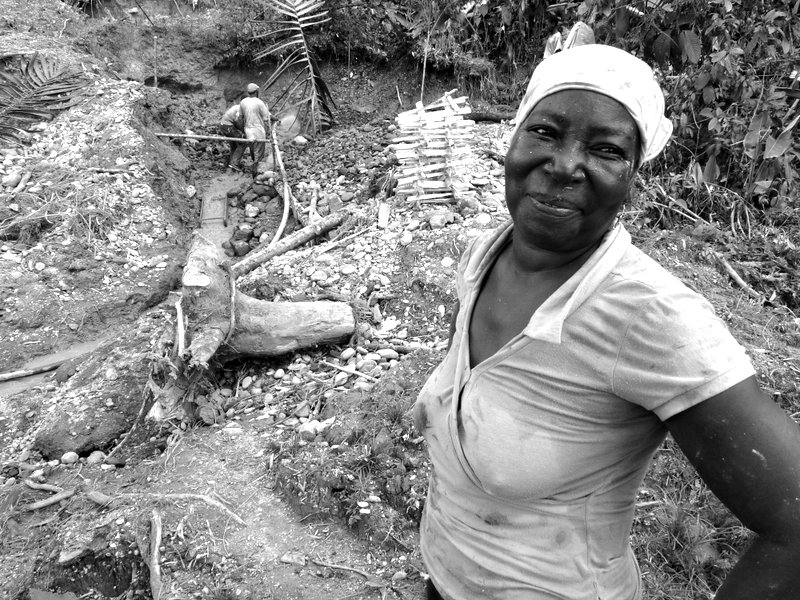

Ameriko only mines small amounts each week which he gets a premium on the gold price for mining ecologically. This Fairtrade Premium gets reinvested back into the mining community, which helps with maintaining the living standards of the artisanal miners. We spoke for about an hour with my questions that I put to him via my translator, which my son recorded onto film.
Ameriko told me his ancestors had been mining in this way for over 500 years, maintaining the biodiversity of the area, replanting, with minimum damage to the environment.
Ameriko, full of integrity and grace, showed a warmth and happiness of spirit. His concerns were that the government will be allowing larger companies from other counties into this region and destroying the localised environment in the process. If only they could listen and learn from the small artisanal miner such as Ameriko then possibly great changes can take place.
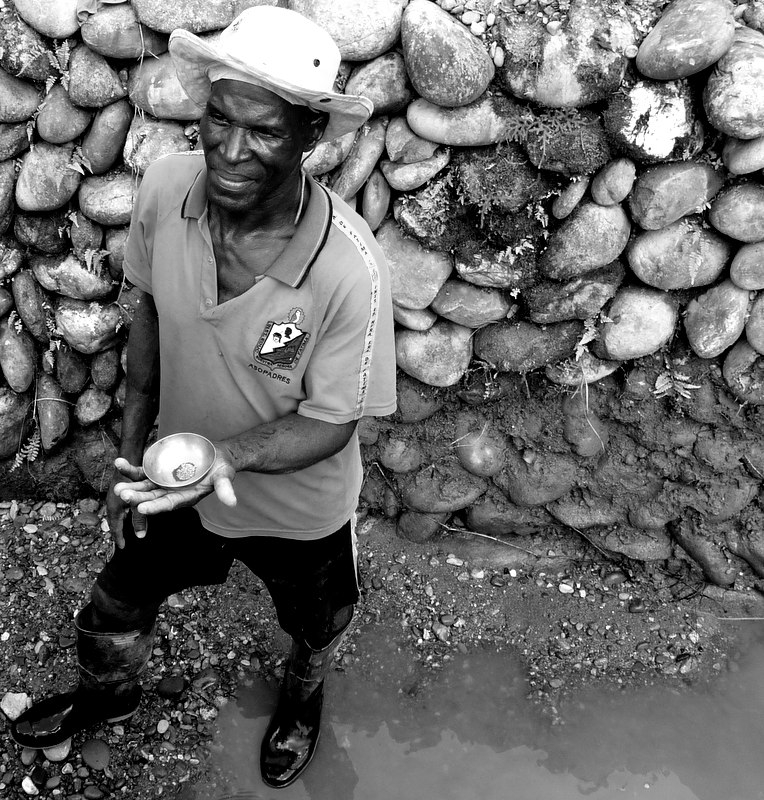

Consumers have the power to change things for the better by asking questions about the origins of their wedding jewellery, and whether the source of the metals support the Fairtrade and Fairmined gold schemes. These simple changes to how we by our jewellery can make the world of difference to people like Ameriko in their quality of life, as well as the biodiversity of the environment those precious metals are found within.
Since making this film back in 2013, the Body, Ore Verde that supported the small artisanal miners collapsed after price wars, mainly from criminal groups, as well as foreign companies buying up the land within the Chocco region. Evidencing the importance the continued work needed to raise consumer awareness, and increasing governmental support for the Fairtrade and Fairmined schemes. I remain passionate and committed to supporting and promoting the Fairtrade/Fairmined movement, in order to ensure that miners and their families are protected and earn a fair wage for their work, as well as slowing down the devastating effects of deforestation on climate change.
I hope you found this blog insightful and a special thanks to April for sharing her experiences in visiting the Columbian artisianal mine. If you are in the process of selecting your engagement ring or wedding ring, and are interested in finding out more about what April offers, please do visit April's website and find out how you can work together to create your dream Fairtrade and Fairmined wedding jewellery.
Interested to find out more on the subject? Then check out our related blog post Show Your Love for Our Earth, as well as Each Other, When You Choose Your Wedding Rings
Happy World Fair Trade Day!
Jen x
Founder of The Boho Bride Guide

